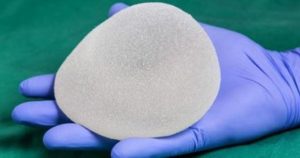 The United States Food & Drug Administration (FDA) recalled a specific type of breast implant manufactured by Allergan. The recall, announced earlier in 2019, included the textured Biocell breast implants and expanders.
The United States Food & Drug Administration (FDA) recalled a specific type of breast implant manufactured by Allergan. The recall, announced earlier in 2019, included the textured Biocell breast implants and expanders.
The implants have been linked to a certain cancer, called BIA-ALCL. While the exact link between these implants and the cancer is unknown, the FDA has deemed that the risk is significant enough to pull the product from the market. As this article from Drug & Device Watch continues:
“…So far, 573 women around the world have received a diagnosis of BIA-ALCL. The chance of contracting this type of lymphoma from an implant is about one in 30,000. Still, the federal agency finds that statistic to be too high to ignore. That is the reasoning for the FDA’s request that Allergan initiate the recall.
Are Textured Implants more Dangerous than Others?
According to the FDA, Allergan’s BIOCELL textured implants have the highest risk of causing BIA-ALCL. Data published by the agency indicates a woman with BIOCELL implants is six times more likely to develop this cancer than the rate of any other implant. This includes textured implants from other manufacturers like Mentor and Sientra.
The risk of breast implant illness applies to everyone with breast implants, but textured devices are the focus of FDA recalls at the moment because these implants have a rough outer shell which is distinct from both smooth breast implants and also from other textured devices.
What to Do When the FDA Recalls Your Implants
The FDA’s recommendation is to do “watchful waiting.” The agency says that the risks to preemptively remove an implant outweigh any benefit. The reasoning behind the FDA’s request for this recall is to help future breast implant patients to avoid breast implant related cancer.”
Read the entire article here: FDA Recalls Textured Breast Implants over Cancer Concerns
The number of recalls of potentially dangerous medical devices continues to increase in the US. As implants such as these textured breast implants go on recall, hospitals have to be on alert to make sure that recalled implants aren’t used in procedures and that patients with the recalled implants are warned of potential issues. To make sure you can locate recalled implants and identify patients with those implants, consider a system like iRISupply that documents the usage of all implants and supplies in the procedural areas of the hospital. With one simple query, iRISupply can both locate the exact real-time location of all recalled implants in inventory and also display any patients who have received that implant for notification purposes.
